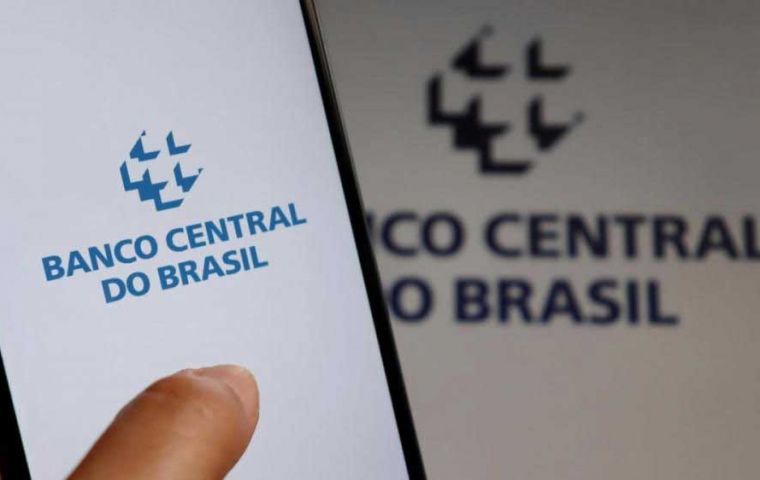MercoPress. South Atlantic News Agency
Fearing inflation ahead, Brazil's central bank leaves basic rate unchanged at 10,50%
 Brazil's central bank decisions are key since for many regional economies, in the short list of trade partners figures strongly Brazil and the Real currency.
Brazil's central bank decisions are key since for many regional economies, in the short list of trade partners figures strongly Brazil and the Real currency. With budget overspending and prospects of higher inflation in weeks ahead, the Brazilian central bank, independent from the Executive, kept the Selic rate unchanged at 10.50%. This means there are no expectations for a resumption of the rates easing cycle this year.
This is an essential fact for Brazilian prospects, but also for other regional economies since for most countries the short list of trade partners figures strongly Brazil and the Real currency.
The central bank Copom decision diluted some of the forecasts that were expecting another 25bp reduction. The accompanying statement was largely unchanged from that at May’s meeting, but it’s clear that rising inflation and inflation expectations are worrying the central bank. It revised up its end-24 and end-25 inflation forecasts (to 4.0% and 3.4%, respectively, from 3.8% and 3.3%).
Surprisingly, the decision was unanimous. In effect it is believed that some policymakers might be trying to avoid a repeat of the market backlash fallout seen after the previous meeting when votes for a larger 50bp cut by Lula-appointed Copom members raised concerns about the politicization of monetary policy.
However the signal seems to be that there’s a widespread agreement on Copom that the inflation outlook has worsened.
With the Brazilian economy continuing to hold up reasonably well, but with headline inflation set to rise further and the fiscal position likely to continue worsening, an opening for further interest rate cuts over the rest of the year seems non existent.
In effect the easing cycle might begin to resume, albeit slowly, when inflation starts to fall back again, with the Selic rate ending the year at 9.50%. But the unanimous decision to leave rates unchanged on Wednesday suggests that the inflation risks prevail.




Top Comments
Disclaimer & comment rulesCommenting for this story is now closed.
If you have a Facebook account, become a fan and comment on our Facebook Page!